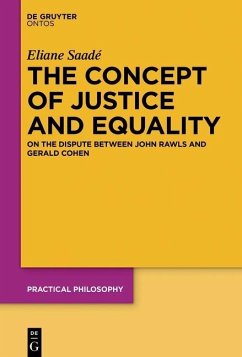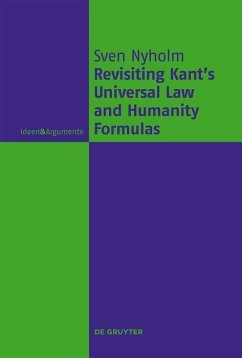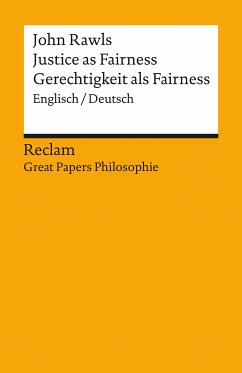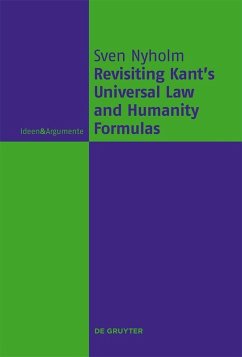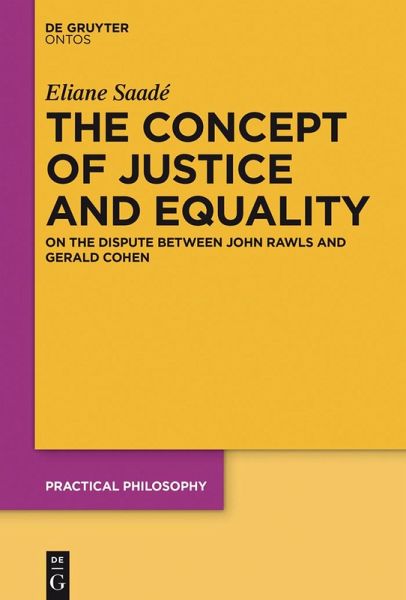
The Concept of Justice and Equality (eBook, ePUB)
On the Dispute between John Rawls and Gerald Cohen
Versandkostenfrei!
Sofort per Download lieferbar
80,95 €
inkl. MwSt.
Weitere Ausgaben:

PAYBACK Punkte
40 °P sammeln!
Unless considered on a practical level, where a precise distribution of social goods is chosen, John Rawls's and Gerald Cohen's approaches to social justice cannot be complementary. Their disagreement about justice and its principles calls for a choice, which opts either for the Rawlsian theory or for the Cohenian one. What is the more plausible approach to social justice? This work compares both approaches and aims to defend Cohen's position in the light of two considerations. It answers the philosophical question about the analysis of the idea of justice, which puts the virtue of justice i...
Unless considered on a practical level, where a precise distribution of social goods is chosen, John Rawls's and Gerald Cohen's approaches to social justice cannot be complementary. Their disagreement about justice and its principles calls for a choice, which opts either for the Rawlsian theory or for the Cohenian one. What is the more plausible approach to social justice? This work compares both approaches and aims to defend Cohen's position in the light of two considerations. It answers the philosophical question about the analysis of the idea of justice, which puts the virtue of justice in its philosophical context. It, however, presents a method everyone can apply in order to arrive at the fundamental principles of justice by employing the power of reason. An analysis of the concept of justice based on the power of reason should seek to uncover the ultimate nature of justice, which is independent of facts and of other virtues. Once exposed, the understanding of justice arrived at should inform social institutions and determine people's daily decisions. A just society is therefore a society where just persons and just institutions exhibit the virtue of justice.
Dieser Download kann aus rechtlichen Gründen nur mit Rechnungsadresse in A, B, BG, CY, CZ, D, DK, EW, E, FIN, F, GR, HR, H, IRL, I, LT, L, LR, M, NL, PL, P, R, S, SLO, SK ausgeliefert werden.




